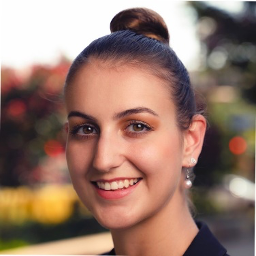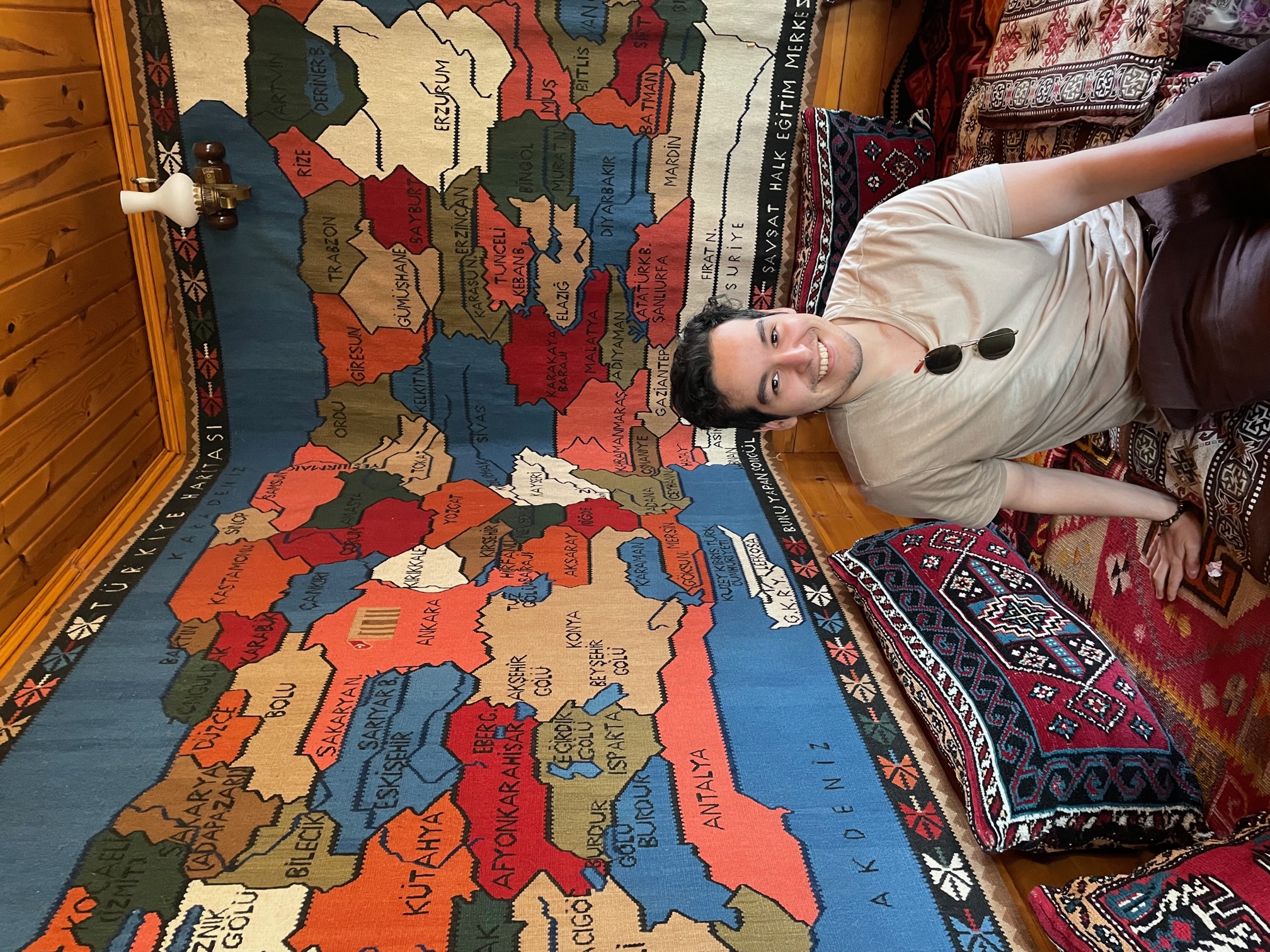Why study Russian?
Approximately 260 million people speak Russian worldwide. Beyond Russia, the language is spoken in Eastern Europe, Central Asia, and areas with large numbers of Russian immigrants, such as the United States and Israel, which both have almost 1 million Russian speakers.
The U.S. State Department classifies Russian as a "critical language." Russian is one of 15 languages deemed to be critical to America’s national security and economic prosperity. Developing proficiency in Russian language skills will give students access to in-demand fields of employment, both with the government and private sector. There are additional scholarship opportunities as well to study critical languages.
Spring 2026 Courses
| RUS 1014: Elementary Russian I (free textbook!) | MWF: 9-9:50 AM | In-person |
|---|---|---|
| RUS 1024: Elementary Russian II (free textboo!) | MWF: 11-11:50 AM | In-person |
| RUS 2023: Intermediate Russian II | MWF: 1-1:50 PM | In-person |
| RUS 3033: Oral Communication Skills (cross listed with Intermediate Russian II) |
MWF: 1:00 - 1:50 PM |
In-person |
Our Program
UTSA’s Russian program provides four levels of instruction from elementary to fourth-year Russian for students to build language proficiency skills. In all levels of language study, students will also gain an understanding of Russia’s cultural heritage, discuss Russia’s role in the world, as well as explore other cultures from Russian-speaking regions and countries. In addition to language classes, each semester we offer literature, film and culture courses offered in English under the classification Comparative Studies in the Humanities (CSH).
By majoring or minoring in a foreign language and culture, students will develop communication skills and critical thinking skills that will be useful across career fields. Our faculty closely advises Modern Language majors and Russian minors toward employment in fields where they can utilize their language skills. A degree in the humanities helps students develop:
- mutual understanding of other cultures and our interconnectedness
- intercultural competency and greater ability to work on diverse teams
- enhanced problem-solving skills through openness to alternative solutions
Students often simultaneously develop additional skills in areas of study in cyber security, global affairs, business, pre-law, and pre-medicine tracks. We encourage and advise our students to apply to national awards that promote language learning, such as the Critical Language Scholarship, the Boren Scholarship, and the Fulbright Student Program.

Career Outcomes
UTSA students who major in Russian or minor in Russian in coordination with another major have been marketable in the following areas:
Government jobs:
- Diplomatic careers with the US Department of State
- Intelligence agencies: CIA, NSA, DIA
- Federal Bureau of Investigation
- Government contractors and think tanks analyzing Russian media
- Department of Energy working in nuclear nonpfroliferation
- Teach For America or other public school teaching positions
- Fulbright English Teaching Assistant or Peace Corps
- University professor in humanities or social sciences
- Higher education administrative positions (study abroad, international student services)
Professional Schools:
Students planning to attend law school or medical school do not have to major in fields such as political science or biology, as long as you are taking pre-requisites for your future graduate program. In fact, it may be beneficial to have a field outside of those majors if you want to specialize in fields like international law or global public health. The Mordern Languages Major (Russian Concentration) offers elective space to pursue professional school prerequisites and other minors/certificates.
Student Success in Russian
Current students and alumni of the UTSA Russian Program come from across UTSA Colleges and Majors. Read below what some of our students have accomplished, participating in study abroad, winning national awards, and attending top-ranked graduate programs:

Taylor Helmcamp, Fulbright English Teaching Assistant in Belarus and UT Law / Master's in Russian Studies
Taylor Helmcamp was named a Fulbright Student Program award recipient to travel to Belarus to teach English. That same year, she was also accepted to a dual degree program in Law and a Master's in Russian and Eastern European Studies at UT Austin. Helmcamp plans to pursue a career in energy law as a foreign service officer.

Jesus Facundo, PhD candidate in Physics
Jesus Facundo was awarded Middlebury’s scholarship for students attending Hispanic Serving Institutions (HSIs), Historical Black Colleges and Universities (HBCUs), or Tribal Colleges to study Russian. Middlebury is one of the most well-known language learning institutions, and has offered language immersion programs for more than 100 years. At UTSA, Jesus was a physics major conducting research in nuclear materials with interests in nuclear nonproliferation studies. Jesus is currently a Ph.D. student in nuclear engineering at UT Austin with the long-term goal to work for the Department of Energy.

Joshua Perez, Fulbright English Teaching Assistant in Turkey
Joshua Perez earned his bachelor’s degree at UTSA in English with a minor in Russian before completing his master’s degree at UTSA in TESL along with a graduate certificate in linguistics. During his undergraduate and graduate degrees, Perez studied abroad in Russia and Mexico. As a Fulbrighter, Perez is traveling to Turkey, having connected with Turkish students during his Russian language learning. Perez wants to work with UNESCO's education branch to address gender inequality in education on a global scale.
Getting Started
Is Russian difficult?
No. In fact, many students claim it is easier than some of the more commonly taught languages. And the alphabet takes only a few hours to learn.
When should I start taking Russian?
Students should start taking courses as soon as possible. Elementary Russian I (RUS 1014) is offered each fall and continues with Elementary Russian II (RUS 1024) in the spring. After that, students can take up to two Russian classes per semester, depending on course offerings.
Do you offer a major and Minor?
We offer a Bachelor's Degree in Modern Language Studies with a Concentration in Russian. We also offer a minor in Russian. Both the major and minor involve taking language classes into the intermediate and upper-division levels combined with Russian-related coursework (culture and history) that can be in English or Russian. Please see the major and minor requirements in the UTSA course catalog linked above.
How does Russian fit in with my other coursework?
We have students who double major or students who add a minor in Russian to their major. Many majors have elective space where you can concentrate your electives into a Minor in Russian. We also have students study abroad and transfer Russian classes back into the major or minor.
What if I already know Russian or previously studied Russian elsewhere?
Students who are heritage speakers or have had prior study will be placed at the appropriate level. Students can also transfer in credits toward requirements from other universities or from the Defense Language Institute. Contact Dr. Chapman for advising.
Are there other activities?
Yes, the UTSA Russian Club meets each semester to promote language and culture through a variety of activities. Please visit our Student Organization pages either on Instagram or on RowdyLink.
Russian Courses Offered
(3-2) 4 Credit Hours. (TCCN = RUSS 1411)
Fundamentals of Russian offering the opportunity to develop speaking, listening, reading, and writing skills. Introduction to Russian culture. May be applied toward the Core Curriculum requirement in Language, Philosophy and Culture. Generally offered: Fall.
(3-2) 4 Credit Hours. (TCCN = RUSS 1412)
Prerequisite: RUS 1014, the equivalent, an appropriate placement test score, or consent of instructor. Fundamentals of Russian offering the opportunity to further develop speaking, listening, reading, and writing skills. Further exposure to Russian culture. Generally offered: Spring
(3-1) 3 Credit Hours. (TCCN = RUSS 2311)
Prerequisite: RUS 1024, the equivalent, an appropriate placement test score, or consent of instructor. Continued opportunity to develop listening, speaking, reading, and writing skills. Continued exposure to Russian culture. Generally offered: Fall.
(3-1) 3 Credit Hours. (TCCN = RUSS 2312)
Prerequisite: RUS 2013, the equivalent, an appropriate placement test score, or consent of instructor. Continued opportunity to develop listening, speaking, reading, and writing skills. Continued exposure to Russian culture. Generally offered: Spring.
(3-0) 3 Credit Hours.
Major works of Russian literature across time, genres, and movements. May be applied toward the Core Curriculum requirement in Language, Philosophy and Culture. (Formerly RUS 3333. Credit cannot be earned for both RUS 2333 and RUS 3333.)
(3-0) 3 Credit Hours.
Prerequisite: RUS 2013 or the equivalent. Further development of speaking skills in a variety of contexts. May be repeated once for credit when topics vary.
(3-0) 3 Credit Hours.
Prerequisite: RUS 2023 or the equivalent. Opportunity to develop advanced-level oral and written communication skills in the Russian language, along with enhanced comprehension skills in listening and reading. May be repeated for credit when topics vary.
(3-0) 3 Credit Hours.
Special Topics in Russian Culture is offered in fall and spring. CSH students complete readings, viewings, and assignments in English transpation. RUS students will do assignments in the same topic in English and Russian. Courses in the past have focused on topics such as: Fake news and disinforation; Urban culture in literature and film; Russian and Soviet pop music; Russian and Soviet Science Fiction, and Russian and Soviet Cinema.
Can I Study Abroad?
Yes! While right now, study abroad in Russia is not possible, students in the Russian program are currently studying abroad in countries where Russian is spoken. Examples in Baltic countries include Estonia, Latvia, and Lithuania. Examples in the Caucasus region include Georgia, Armenia and Azerbaijan. There are also study abroad programs that travel to Central Asia to Kazakhstan, Uzbekistan, and Kyrgyzstan. Students can also attend domestic summer language programs in the US. Your coursework will apply toward the Minor in Russian or the major in Foreign Languages.
Scholarship Opportunities
There are many scholarship opportunities to help fund study abroad programs. Russian is marked as a “Critical Need Language” by the US Government, which increases funding opportunities. Students should plan to look at scholarship opportunities up to one year in advance of their travel date. Please see the following award opportunities, which UTSA Russian students have received:
- Gilman Scholarship for Study Abroad: Up to $5000 for study abroad programs
- Critical Language Scholarship: Fully-funded summer language institutes abroad and offered virtually
- Boren Scholarship: Up to $20,000 to study Russian for up to 12 months.
- Project Go: Full funding for ROTC and AFROTC students to study Russian in the US and abroad during the summer.
Domestic Opportunities
Students are also able to earn credit in intensive summer language programs. By participating in one of these programs, students can transfer credit toward the minor/major and typically earn up to a year of language experience. On these programs, students typically spend 4-5 hours per day taking intensive language classes. Students can also study other Slavic languages such as Ukrainian, Polish, or Bosnian, Serbian, and Croatian.
We recommend the following programs in Russian:
- Arizona State University Critical Language Institute (domestic, abroad, and hybrid programs)
- University of Pittsburgh Summer Language Institute (domestic programs)
- Middlebury Language School (see scholarships for students attending Hispanic Serving Institutions).
Please email Russian Program Director, Andrew Chapman, at Andrew.Chapman2@utsa.edu for application advice and how programs will apply toward UTSA credit.


